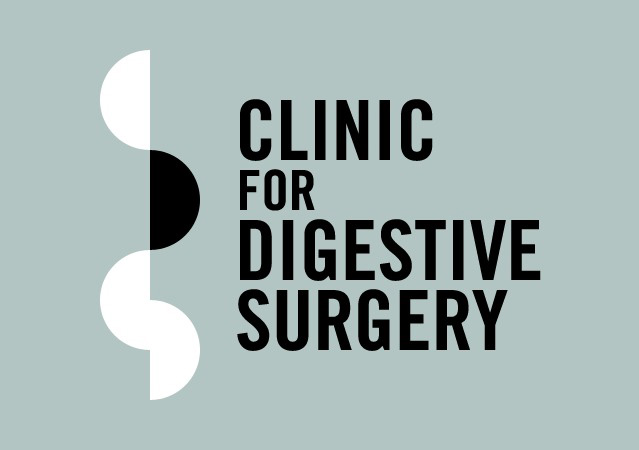The symptoms of dysphagia, or trouble swallowing, can vary from a slight pain to a complete incapacity to swallow. A person’s quality of life may be greatly impacted by this illness, making it challenging to take medicine, eat, and drink. Dysphagia has been linked to several digestive disorders, including oesophagal disorders. Effective treatment requires identifying and resolving the underlying issues.
What Does Dysphagia Look Like?
Depending on its intensity and underlying reason, dysphagia can present itself in a variety of ways. Some people may report a sensation of food being caught in the throat or chest, while others could find it difficult to swallow liquids or meals altogether. Other symptoms include difficulty swallowing, food regurgitation, choking or coughing during meals, and inadvertent weight loss. When dysphagia is severe, it can cause malnutrition or dehydration because the affected person cannot take in enough nutrients and liquids.
Common Digestive Conditions Causing Dysphagia
One of the most frequent digestive disorders that can cause dysphagia is oesophagal stricture.
Esophageal Stricture –
The disease known as oesophagal stricture is characterised by the constriction of the oesophagus, which is the tube that transports food from the mouth to the stomach. Prolonged acid reflux disease (GERD) can result in oesophagal strictures, which constrict and scar the oesophagus. Swallowing becomes more challenging when the oesophagus narrows, especially when consuming solid foods.Additionally, oesophagal inflammation brought on by radiation therapy or infections can cause strictures. Severe strictures have the potential to obstruct the oesophagus, necessitating immediate medical attention.
- Achalasia – Achalasia is an uncommon disorder in which food has trouble passing into the stomach due to improper relaxation of the lower oesophagal sphincter, the muscle that sits at the intersection of the oesophagus and stomach. This may result in symptoms like weight loss, regurgitation, and chest pain, in addition to dysphagia for both liquids and solids.
- Esophageal Cancer – Although less prevalent, when the tumour grows and obstructs the oesophagus, oesophagal cancer can induce progressive dysphagia. In the beginning, swallowing solid food may be challenging, and this can lead to issues with liquids as well. The improvement of oesophagal cancer outcomes depends on early detection.
Other Causes of Dysphagia
In addition to digestive disorders, dysphagia can also result from the following factors:
- Neurological Disorders – Dysphagia can result from disorders that affect the nerves and muscles involved in swallowing, such as stroke, Parkinson’s disease, multiple sclerosis, and amyotrophic lateral sclerosis (ALS).
- Muscle Disorders – Conditions that cause the skin and connective tissues to stiffen and tighten, such as scleroderma, can damage the oesophagus and make swallowing challenging.
- Infections – Some infections, such as those brought on by the herpes simplex virus or Candida (yeast), can produce oesophagitis, or inflammation of the oesophagus, leading to dysphagia.
When to Seek Medical Advice
It is important to take dysphagia seriously, particularly if it is ongoing or getting worse. Seek medical assistance if –
- You have swallowing difficulties that don’t go away after a few days.
- You experience difficulty swallowing that lasts more than a few days.
- There is pain while swallowing.
- Food or liquids regularly get stuck in your throat or chest.
- You experience regurgitation, weight loss, or coughing during meals.
- There are signs of dehydration or malnutrition.
Dysphagia patients must receive prompt examination because, if left untreated, aspiration pneumonia—a condition in which food or liquid gets into the lungs—can develop.
How to Diagnose Dysphagia
A comprehensive evaluation of your symptoms and medical history is necessary to diagnose dysphagia, in addition to a number of diagnostic tests. These could consist of:
- Barium Swallow – You will be given a barium solution to swallow during this test. This will coat your oesophagus and make it visible on X-rays, allowing the doctor to see any abnormalities or obstructions.
- Endoscopy – This procedure involves passing a flexible tube with a camera down your throat to check the stomach and oesophagus. It can help detect cancers, inflammation, strictures, and other abnormalities.
- Oesophageal Manometry – This test gauges the force and coordination used by the oesophagal muscles and the regular contractions that occur while swallowing.
- Ph Monitor – The pH monitoring test aims to determine the oesophagus’s acidity to detect acid reflux, which can result in oesophagal stricture.
Treatment for Dysphagia
The underlying cause of dysphagia determines the course of treatment:
- Oesophageal Stricture – Dilation, or stretching the narrowed portion of the oesophagus using a specific balloon or other dilating device, is a common treatment method. Surgery or drugs to lessen acid reflux may be required in specific situations to stop recurrence.
- Achalasia – Treatment options include surgery to sever the sphincter muscle (myotomy) or methods to widen or relax the lower oesophageal sphincter, such as pneumatic dilatation.
- Esophageal disease – Depending on the disease’s stage and location, treatment options for this type of cancer may include surgery, chemotherapy, radiation therapy, or a combination of these.
Book a Call
Diagnosing and treating disorders that can lead to dysphagia is our area of expertise at the Clinic for Digestive Surgery. Our group of knowledgeable specialists is here to help you at every stage of the procedure, including diagnosis, treatment, and aftercare. Make an appointment with us right away if you’re having trouble swallowing so you can get the support and information you require.














